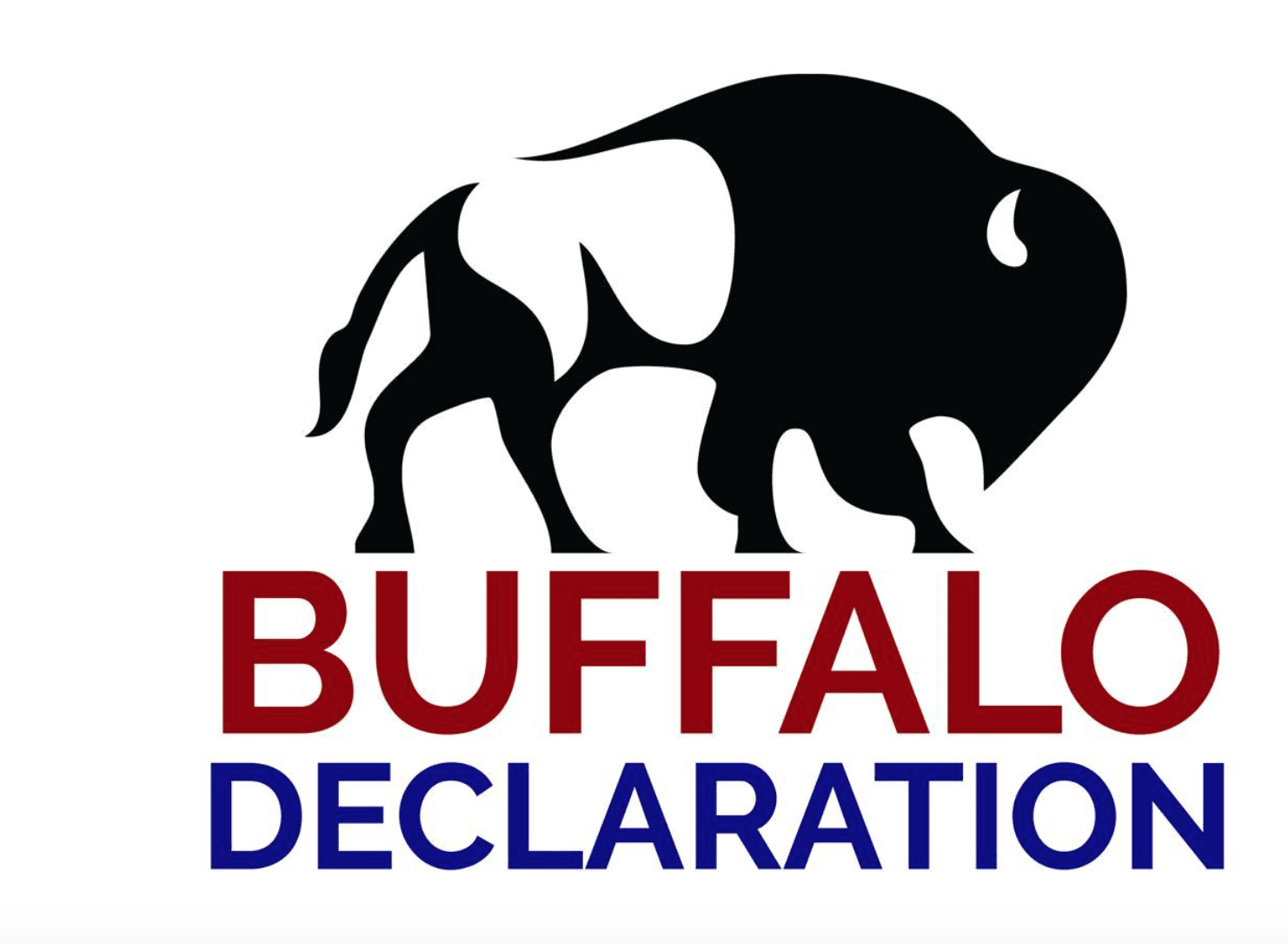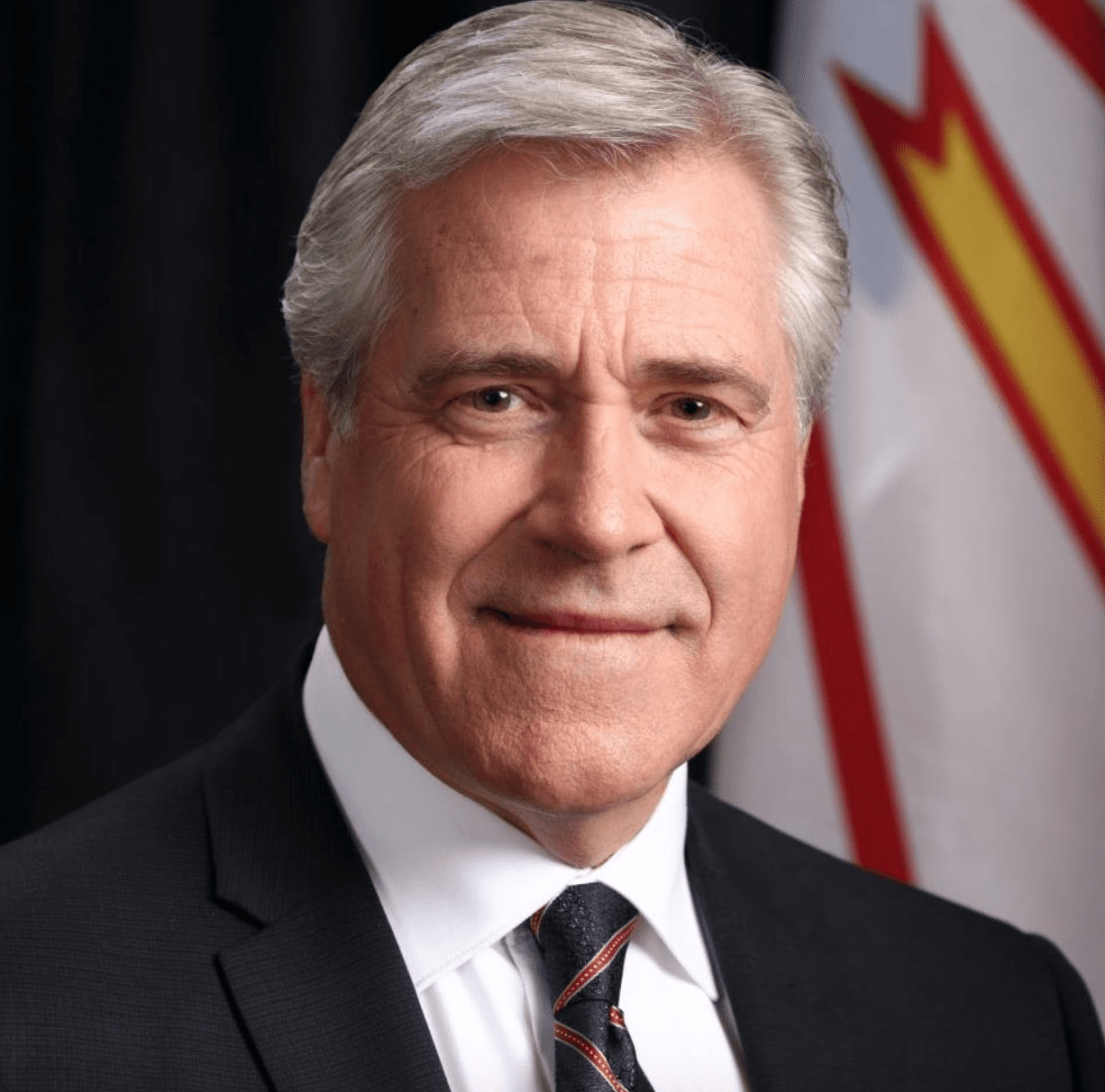On Thursday evening, Conservative MP Michelle Rempel Garner with the endorsement of three fellow Conservative MPs released what she calls the "Buffalo Declaration" a manifesto that outlines the grievances of Alberta (and to a lesser extent Saskatchewan), claiming that they are unfairly treated within Confederation, and purports to lay out some fixes to them. The problem? That much of what is contained in the document is false, absurd, and is mere misdirection when it comes to the actual problems that the province is facing. And they are serious problems but what's in this document will do nothing to solve them, and will only serve to build even more false expectations and continue ignore the kinds of solutions that are necessary.
"The reality is that there are structural inequities in Confederation that disadvantage the people I represent," Rempel Garner claimed in a video accompanying the release.
I'm immediately dubious about the whole premise of this document because during nine years of government under the Conservatives when the West "got in" several of which Rempel Garner herself was a member of Cabinet absolutely none of these so-called "structural" issues were ever raised, let alone addressed. In fact, even when world oil prices crashed under Harper's watch and Alberta went into recession, they didn't do anything about equalization (they did tinker with the formula but not in a significant way) or fiscal stabilization, and when they gutted environmental assessment legislation, they only ensured that projects wound up in litigation instead of being easily approved. They offered none of the declarations that this Declaration demands either, which is a blazing klaxon that these are a load of Grade-A horseshit.
The premise of the Declaration is that Alberta is and always has been a colony, and that it has been structurally disadvantaged from the moment it was purchased from the Hudson's Bay Company. There is no argument that the purchase itself was hugely problematic but the problems were for the Indigenous people who were displaced as a result. Treaties were supposed to ensure that land and resources were shared, but that didn't wind up happening for the most part, and when control over natural resources was turned over to the provinces, it has been argued that this was in violation of the Royal Proclamation of 1763, which should have ensured Indigenous control over those resources as it was their land. The Declaration seems strangely silent on that point.
The revisionist history around the National Energy Program conveniently ignores the international fuel crisis that preceded it, or the collapse of world oil prices that occurred shortly thereafter which had a bigger impact on the oil sector than the program itself. But Alberta has been nursing this inflated grievance for forty years, and it acts a bit like the linguistic zombie virus from Pontypool, where the mention of it makes Albertans even those who never lived through it start frothing at the mouth.
The Declaration is also completely disingenuous and I would go so far as to say that it outright lies on a number of key points that it lists:
The political veto of the Northern Gateway pipeline, regulatory strangulation of Energy East, silence over U.S. President Obama's veto of the Keystone XL pipeline, passing Bills C-69 and C-48; small business tax increases, the carbon tax, nationalization of the TMX pipeline, failures to address significant trade issues with major economies like China and India; and refusal to enforce the rule of law on approved resource development projects or on illegal blockades have all served to close Alberta's economy to investment and job growth.
Where to begin? The problem with Northern Gateway was that the Indigenous consultation was so flawed that the Federal Court of Appeal nullified its permit and chastised the Harper government in the ruling for their failure to fulfil their duty to consult. There was no "regulatory strangulation" of Energy East it was not economically viable once Keystone XL was back on the table, and it was never going to be used to feed Eastern energy markets, but merely act as a route for exports. Any "silence" over the Obama veto of Keystone XL was on Stephen Harper's part, as Trudeau went to Washington to advocate for the project, and that's on record. Bill C-69 was about providing better certainty to environmental assessments after Harper's 2012 legislation simply turned into a series of lawsuits. The "small business tax increases" were in fact cuts to small business taxes and closing loopholes that ensured that a small number of high-income earners were able to shield income from taxation through personal corporations. The federal carbon price is a free market instrument (which Alberta claims to cherish) to provide price certainty for environmental externalities which was supported by major players in the energy sector. The "failure" of resolving trade issues with China and India are because China takes hostages, and India's prime minister levied tariffs (that affected Australia more than they did Canada) in order to secure rural votes in advance of his own election. As for the "rule of law" assertion on the protest blockades, that's an abuse of the term.
Other fictions in the piece claim that Alberta is the most "underrepresented province" in the Senate, which is funny because the Senate is organized along regional and not provincial lines, and not on a population basis. The demands for Senate elections will do absolutely nothing to change Alberta's situation, other than create gridlock in Parliament. As for representation in the Commons, their seats reflect their population, and if one province is under-represented in that Chamber, it's Ontario (and would have been even more so if Harper's first attempt at seat redistribution were allowed to stand). The document resorts to the usual canards about how equalization works, and it goes so far as to complain that the West is not represented in the Parliamentary Press Gallery, which is a function of the economics of news and bureaus centralizing their reporting under the aegis of media concentration and has nothing to do with supposed "Laurentian" attitudes. It also claims that the promotion of bilingualism on the Supreme Court of Canada disadvantages Albertans when they currently hold both of the designated "western" seats on the Court.
There are other bizarre grievances, such as the fact that Ottawa doesn't recognize that Alberta is "culturally distinct," and proceeds to grouse that they are written off as rednecks. As an Albertan, I can assure you that I have no idea what "cultural distinction" Alberta supposedly possesses, except perhaps the sense of entitlement drilled into us from childhood that it was our hard work and ingenuity that put the oil into the ground, and it's our hard work and ingenuity that get it out, and everyone should bow down to us for that fact.
"A line in the sand has to be drawn, and it's being drawn here today," Rempel Garner declares, and claims that this Declaration is a starting point for a discussion, but this document is simply a recitation of grievances coming from a place of emotion, and not rationality. Nothing in this document will do anything to return Alberta to the "good old days," because those days are gone and aren't coming back unless someone can invent a time machine and stop the shale revolution from happening in the US. The province has hard choices to make about its future where persistently low global oil prices and the need for decarbonization are changing the economy, and they have to start tackling them head-on. The Buffalo Declaration ignores that the world is changing, and simply seeks to blame Justin Trudeau and "Ottawa" for problems that they didn't create. If their alternative is separation, that delusion won't help them either, and they need to start having an honest conversation with themselves. This is not that honest conversation.
Photo Credit: The Western Standard








